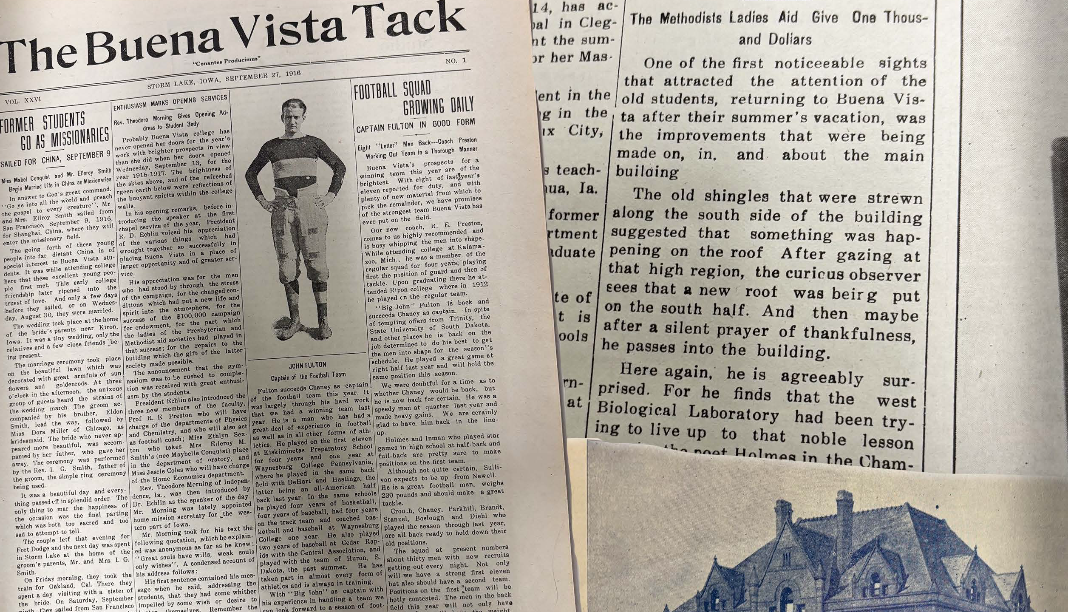Aquila Theatre Brings ‘Julius Caesar’ to BVU
November 16, 2022
On Nov. 3, Buena Vista University hosted the Aquila Theatre with their production of William Shakespeare’s “Julius Caesar,” allowing me the opportunity to attend the show. According to the Aquila Theatre company, “Julius Caesar” is a production that “follows the rise and fall of one of history’s most notorious leaders.” The show embodied the Shakespearean era with many modern twists, making the show more relevant to the audience.
The production was the definition of a traveling show. The staging, props, and costuming were minimalistic and, in my opinion, were one of its most unique aspects. The cast did not leave the stage once during the performance. All costume changes were made quietly in the background and, when not performing, actors sat in chairs placed at the very back of the stage. No backdrops were used. Instead, a projector depicted the backdrop scenes, allowing for a more minimalistic stage presence.
On the topic of minimalistic, the props used were minimal as well. Other than a few small knives and other knick-knacks, the only stage pieces were a table and six chairs. The stage pieces were not only used for their intended purpose, but they were also used as a podium, wall, barrier for war, and many other simple backdrops, making the set very versatile and giving them the ability to do the show virtually anywhere.
When looking towards the modernization of the production, they put females in male roles and used modern cell phones, to name the main changes. These differences made the production more relevant and interesting to today’s society, allowing younger students to find interest in it a little easier.
One of the most impressive changes was shown in casting. Some of the most significant roles in this production were held by female actors. In Shakespeare’s original screenplay, there was only one female casted as Caesar’s wife, Portia. In this production, there were an equal amount of female and male actors, showing a wide versatility of skill and inclusion in casting. The role of Brutus, arguably the most vital role in the show, was held by Katie Housley, a Canadian stage and screen actress based out of New York.
Going backward a bit, the production was still Shakespearean. The dialogue was read in the way Shakespeare wrote it, and they decided not to use microphones. This is a unique decision because projection in a performance space can be difficult, but they nailed it on the head.
The acting itself was incredible, no matter which actor we watched. Everyone stepped into their roles full-heartedly, creating authentic and intentional emotion. In many cases, there was loud screaming to really show the emotion, tears were shed, and some were even visibly shaking when scared. The volume of their voices was consistently fluctuating, based on the scene, emotion, and/or conversation they were having.
Personally, I enjoyed this show and would recommend it. Having those modern pieces in it made it a little difficult to follow, but as the show went on, it got a lot easier. I would be extremely interested in seeing other shows by this theater company to see if all of them are put on in this same fashion, or if the decisions made were specific to “Julius Caesar.”








